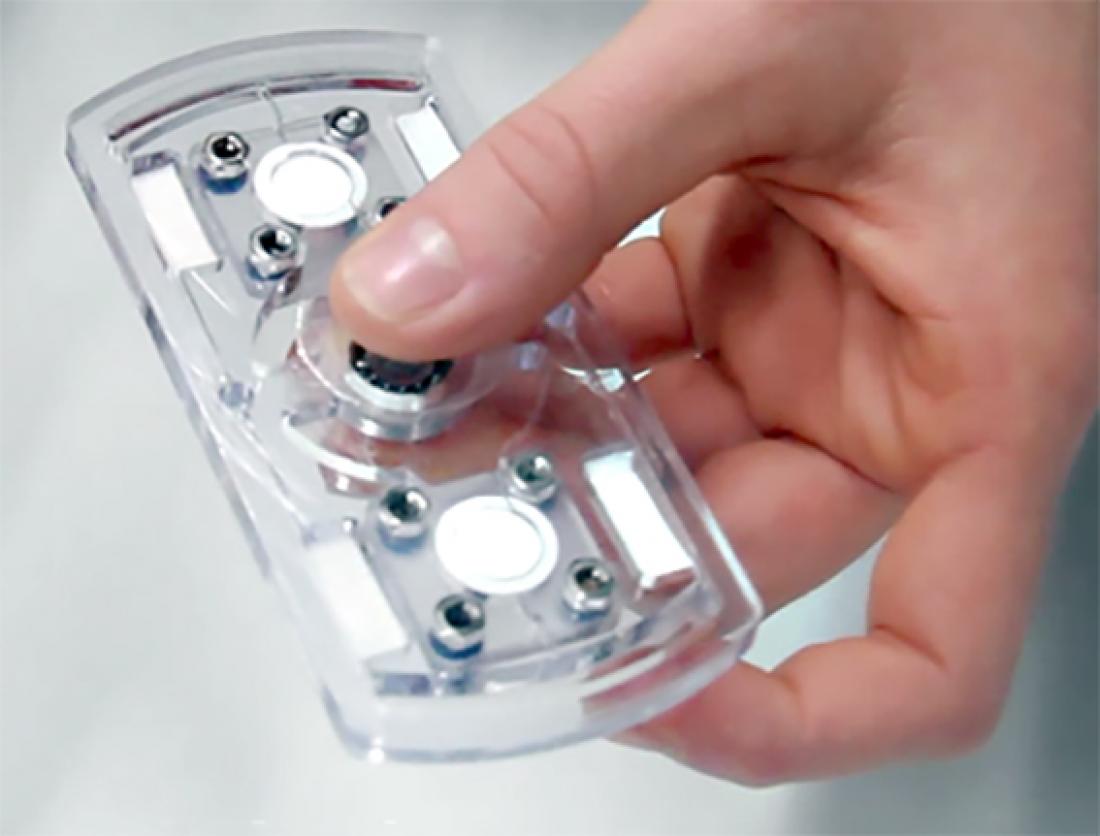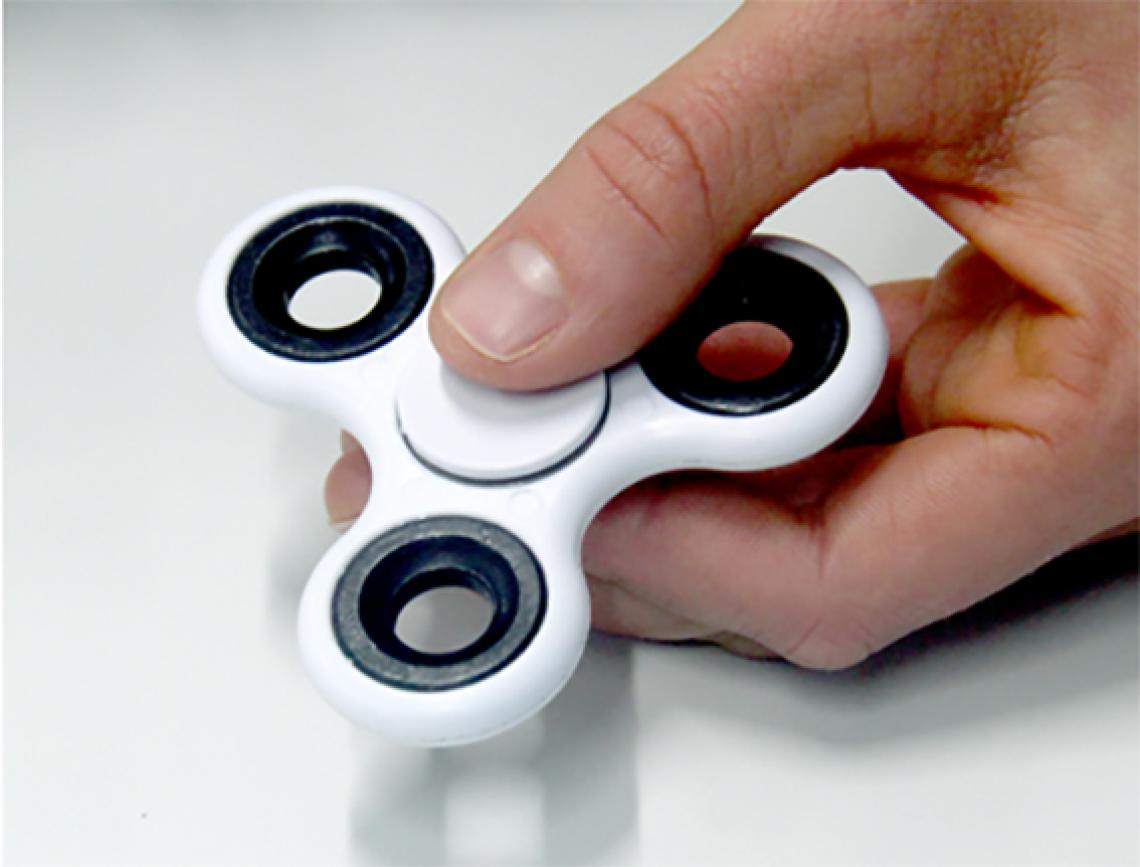This story is featured in the Asia Research News 2021 magazine. Read in ISSUU (above) or full text and images below.
A spinning microfluidic device, developed by researchers at the Ulsan National Institute of Science and Technology (UNIST) and Korea’s Institute for Basic Science (IBS), can detect urinary tract infection in under an hour. Inspired by the popular fidget spinner toy, it works much faster than conventional laboratory tests, which can take days to return results.
“Our simple, rapid test can help improve patient care, especially in low-resource settings, and ensure only those with infection receive antibiotics, helping in the global fight against antibiotic resistance,” says UNIST biomedical engineer Yoon-Kyoung Cho, who led the research.
The popular fidget spinner toy inspired the design for the urinary tract infection test device.
Besides being fast, the test is inexpensive, portable and accurate, requiring only a small urine sample that is added to the device by a pipet. A flick of a finger sets the gadget in motion.
The spinning motion creates a centrifugal force that, combined with the researcher’s new fluid assisted separation technology (FAST), works to filter and enrich bacteria in the sample so infection can be detected by the naked eye based on colour. A larger infection results in a darker orange or red colour.
Specifically, the centrifugal force pushes the urine sample outwards so that it spreads over a filtration membrane. As the sample drains through, bacteria particles accumulate on top. A drainage chamber beneath the membrane is filled with a buffer solution that ensures uniform filtration of the urine through the membrane with minimal hydrodynamic resistance.
“This allowed for maximized bacterial cell enrichment efficiency while minimizing the force needed for the filtration,” says Cho. “One or two spins were enough to filter a one-millilitre sample, despite a large variation in the spin speed generated by people with different hand power.”
The team demonstrated the efficacy of their device by testing urine samples from 39 people suspected of having urinary tract infection in Tiruchirappalli, India. The results were reported in the journal Nature Biomedical Engineering. Compared to the gold-standard culture method, the diagnostic fidget spinner provided a comparable result on-site in only 50 minutes. The device can also test bacteria susceptibility to two different antibiotics in less than two hours todetermine which one would be more effective for treating the patient.
Sometimes, people suspected of having a urinary tract infection are given antibiotics before confirming test results. The study found that 59% of patients were over- or under-prescribed antibiotics while waiting for conventional test results.
“I hope our rapid on-site test can help more patients get the most effective treatment, especially since UTIs are one of the most common infections in the world,” Cho says.
The team plans to continue investigating ways to adapt the diagnostic fidget spinner for other diseases, including viral infection.
Further information
Professor Yoon-Kyoung Cho
[email protected]
Department of Biomedical Engineering
Ulsan National Institute of Science and Technology





